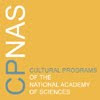From: Eugene Thacker
Date: Sun, 11 Mar 2007 13:17:04 -0400 (EDT)
Hi all -
Maybe we can suture together the questions about "epistemic things" that
Ingeborg raises with Suzanne's questions concerning the sort of governmetnality of those things?
There's been alot of talk about epistemological issues and knowledge-productionso far. Let me ask a dumb question - why exactly are we assuming that epistemology supercedes ontology in the lab or the studio? Maybe someone can clarify this for me - in Rheinberger I don't get why the language ofepistemology enters at all - it seems to be a "soft ontology," in which artifacts are not quite Heideggerian "things" but not simply abstract ideas either. I understand how the phrase "knowledge-production" enters the picture, largely because of how scientists and artists are situated within a larger political economy of ideas (which in both cases are privatized). So in an example like population genomics - which we can really call biocolonialism -the issue isn't so much what count as knowledge, but how the concept of an"essence of life" (a certain percentage of genetic variability anddistribution) is linked to a political concept about foundational groupidentity (be it in terms of race, nation, or population - or all three).
Among Suzanne's points (and by the way Suzanne, the RP images are great!), the notion that non-scientists are playing "catch up" is provocative, not untrue, but also not completely accurate. On one level, yes, this does seem to be thecase in academia, but only in certain fields. Depending on how cynical one is,one could say that the biotech industry has inadvertently made possible a whole host of science studies books. A more attenuated view would say that there is a kind of intellectual "ressentiment" in the way that academics respond, reply to, and react to events that are already happening. It seems that this is one problems of thinking about how bioethics can be truly effective.
Now, I find learning about new scientific fields and technical innovation as sexy as the next person. But I also feel that, at the end of the day, there are often basic and quite familiar concepts that emerge from them. For example: RP technologies, tissue engineering, and "organ printing." Great stuff - better than science fiction. But it raises a question about the relation between"life" and "form." Is the key to engineering an effective, functioning,
histocompatible organ in the computer-based model (eidos) or is it in the actualization of that model 'in vitro' or 'in vivo'? (These are arguably, the two most valued froms of zoe or biological life in biotech.) We might assume that for tissue enginering the proof lies in the actual biological organ - it functions or it doesn't. But it is the former (the model, algorithm, eidos)that is, in part, rendered valuable as a patent or as part of a technology. It seems that it is necessary to distinguish "form" from "life" while admitting their intermeshing (is this not the premise of Aristotle's De anima?)
So let me also suggest that science and technology are at the same time playing "catch up" to issues raised by classical philosophy....?
-Eugene
to post a response, click on the "comment" button below
to return to the main page, to go www.visualcultureandbioscience.org
Subscribe to:
Post Comments (Atom)

No comments:
Post a Comment